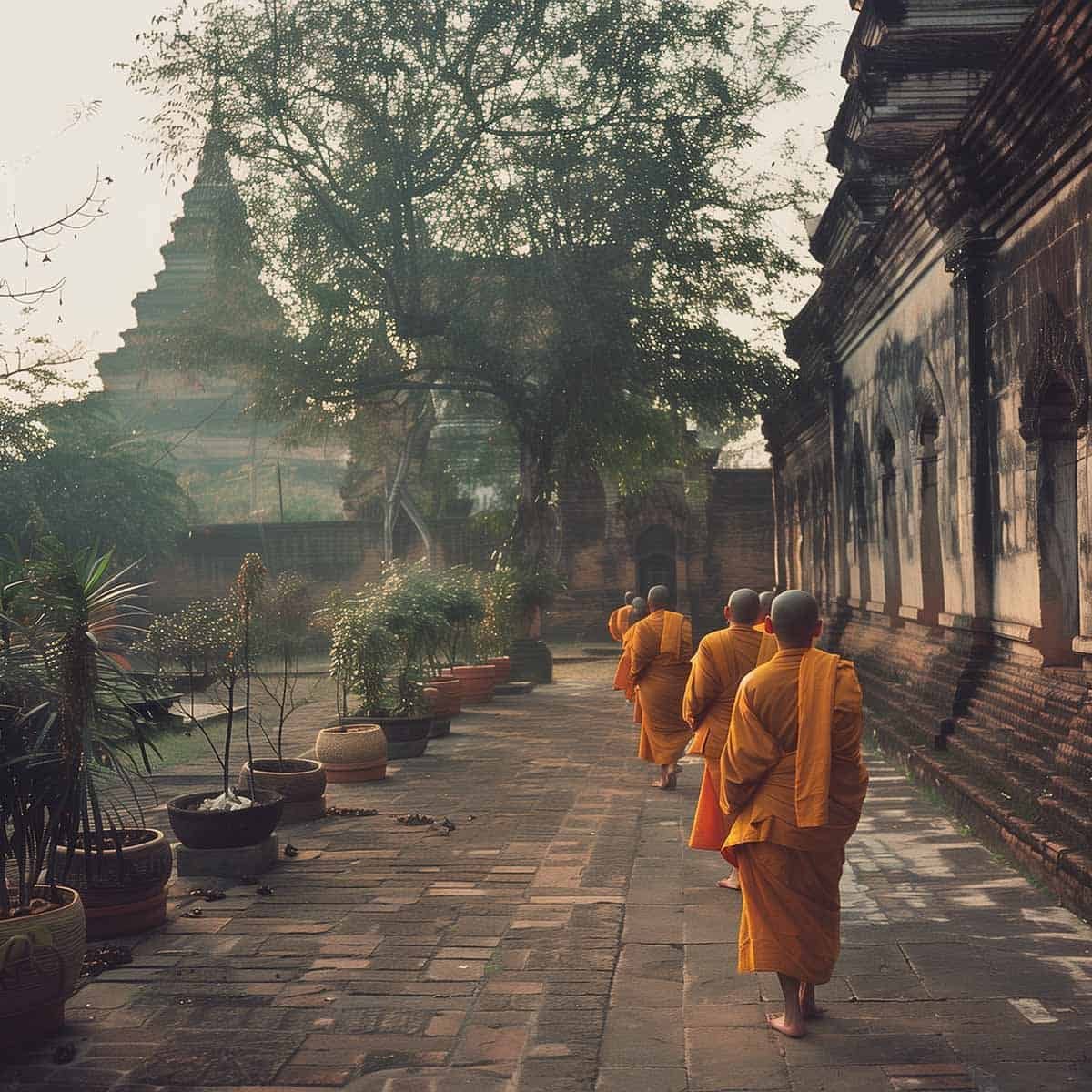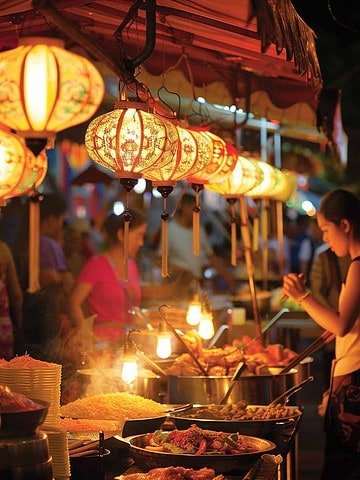
In Thailand, the act of offering food to monks, known as "Tak Bat," is a sacred ritual observed daily by devout Buddhists. This ritual is a manifestation of the principle of generosity (dana) in Buddhism, where laypeople provide alms to monks as a form of spiritual merit-making. The Sangha, the monastic community, plays a central role in this practice, as it not only sustains the monks physically but also reinforces the bond between the Sangha and the lay community.
Historical and Religious Roots
The tradition of offering alms to monks is deeply rooted in the time of the Buddha himself, who established rules for the Sangha to rely on alms as their means of sustenance. In Thailand, Theravada Buddhism, which emphasizes the teachings of the Buddha as preserved in the Pali Canon, guides this practice. Monks lead a simple life dedicated to spiritual cultivation, and receiving alms is a way for them to practice humility and detachment from worldly possessions.
The Morning Alms Round
Every morning, before dawn, monks embark on their alms round (Pindapata). Clad in saffron robes, they walk barefoot through the streets with alms bowls (Patta), silently collecting offerings from the faithful. Laypeople, often kneeling with heads bowed, respectfully place food, typically rice and other prepared dishes, into the monks' bowls. This act is performed mindfully, with the belief that offering food to monks brings blessings and merit to the giver.
Symbolism and Spiritual Significance
Offering food to monks is more than a charitable act; it is imbued with symbolism and spiritual meaning. It symbolizes the interconnectedness of the Sangha and the lay community, reinforcing the principle of mutual support in Buddhist practice. For laypeople, the act of giving alms cultivates generosity (dana), one of the foundational virtues in Buddhism, promoting spiritual growth and the accumulation of merit (punna).
Community and Social Cohesion
Tak Bat plays a crucial role in fostering community cohesion and social harmony. It provides an opportunity for neighbors to come together in a shared ritual, regardless of social status or wealth. In rural villages and urban centers alike, residents gather to participate in the alms-giving procession, creating a sense of unity and collective mindfulness. Through Tak Bat, communities affirm their commitment to Buddhist values and communal solidarity.
Culinary Traditions and Offerings
The food offered to monks reflects Thailand's rich culinary heritage and regional diversity. Traditional offerings often include steamed rice (khao), curries, stir-fried dishes, fruits, and sweets prepared with care and respect. Each region may have its specialties, reflecting local ingredients and flavors. This diversity in offerings not only adds to the cultural richness of the ritual but also serves as a reminder of the unity in diversity that the ritual fosters.
Ritual Etiquette and Respect
Participating in Tak Bat requires observing specific etiquette and respect for Buddhist customs. Laypeople dress modestly and approach monks with humility, avoiding loud noises or distractions during the alms round. It is customary for offerings to be made without direct eye contact, as a sign of reverence. Monks, in turn, receive offerings silently, acknowledging each donation with a slight bow or a gentle nod of gratitude.
Contemporary Challenges and Adaptations
In modern Thailand, Tak Bat faces challenges amid rapid urbanization and changing social norms. Issues such as commercialization, overcrowding during tourist season, and cultural misunderstandings have prompted discussions on preserving the authenticity and sanctity of the ritual. Efforts are underway to educate the public about proper conduct during alms-giving and to promote sustainable practices that respect both monks' spiritual needs and the community's traditions.
Conclusion: Preserving a Sacred Tradition
Offering food to monks through Tak Bat remains a cherished practice that embodies the core values of generosity, humility, and community in Thai society. Beyond its religious significance, Tak Bat is a cultural touchstone, connecting Thais across generations and regions through shared devotion and respect for Buddhist teachings. As Thailand continues to evolve, the tradition of Tak Bat stands as a testament to the enduring importance of spiritual nourishment and communal solidarity in daily life.
In summary, Tak Bat is not merely a ritualistic act but a profound expression of Thai culture and Buddhist spirituality, where the simple offering of food becomes a gateway to spiritual merit and communal harmony.





Leave a Reply